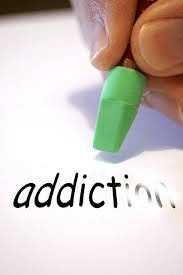Dear Michele,
Just saw the movie “Thanks for Sharing” with Gwyneth Paltrow, Mark Ruffalo and Tim Robbins. Yes, it’s from 2012, shows you how far behind the times I am. It’s basically about a sex addict who starts dating again. My question is this: if someone tells you she is an addict, shouldn’t you run in the opposite direction? Or am I just being insensitive (I’ve been called worse)? Does this make me too picky?
Thanks,
Date An Addict?
Dear Date An Addict,
There is no one simple answer. It’s unfair to assume all addicts are any one way, that would be discrimination. Addiction is a very painful disease, many times causing shame and terrible life consequences for the addict. It would be important to listen, ask questions, and then decide for yourself if you want to explore a relationship with that person. And let’s not be the one to throw the first stone. We all have struggles, some are more private than others, but none of us are above the need to examine our lives and work on growth. So, if I had to give some guidelines, these would be it:
How long has the person been abstaining from his or her addiction? The question assumes that she is in recovery. Trying to date an active addict who is not seeking treatment is like suicide by proxy. It’s not good for your date, and it’s not good for you. There really isn’t a relationship, because the addict is more committed to his or her “substance” than any other relationship (which is part of the definition of an addict). But assuming she is in recovery, it’s important to know if she’s been sober for one day, one week, or one year. Most recovery programs ask for participants not to date for the first six months or year. In addiction, time is the one clear aspect that reveals if a person is growing towards health. There is never complete recovery, as the urge to act out is likely always there, but there are clear steps that delineate progress. Some programs consider relapse a part of recovery, so discussion of any relapse or triggers for relapse are very important.
How did you find out? Did your date tell you directly? If so, this is a great sign. Authenticity, being real about feelings, and avoiding the duck and cover mentality are parts of recovery. If you find out through a friend, or by picking up on other clues, then a discussion about why the person did not feel open enough to tell you is warranted. If you sense any deception, then moving forward with a relationship would not likely be fruitful until trust could be established.
Can your date talk to you about it? Can she tell you what she needs in terms of support, what it means in terms of protecting her sobriety? You will need to have many conversations about expectations, so start now. Can she handle your questions? I think it’s ok to ask about specifics, how long she was an addict, how she got into it, how she got out of it, what she’s learned, what is now different in her life.
But, it’s not all about the addict. What do you bring to the picture? Can you be open and honest about your own struggles? Do you enjoy being a “rescuer?” Make sure that your blind spots aren’t playing into a potential dysfunctional dynamic. Can you support your date’s sobriety? This means, if she can’t drink, can you be sure that you don’t participate in activities together that revolve around drinking? It may mean that it would be best if you didn’t drink in front of her again. Same goes for a gambling addiction, food addiction, sex addiction, etc.
The upside is that my experience with recovering addicts is they possess depth and humility born from preserving through very difficult circumstances. Most develop a relationship with a “higher power”, and for those that are Christian and Catholic, they likely have a very active and meaningful spiritual life. This can be a huge strength for a relationship. Immediately “running” in the opposite direction is a bit insensitive, while at the same time you have every right to choose who you want to be in relationship with. I would suggest bringing such a decision to prayer, asking for discernment, and for humility.
God Bless,
Michele Fleming, M.A.



